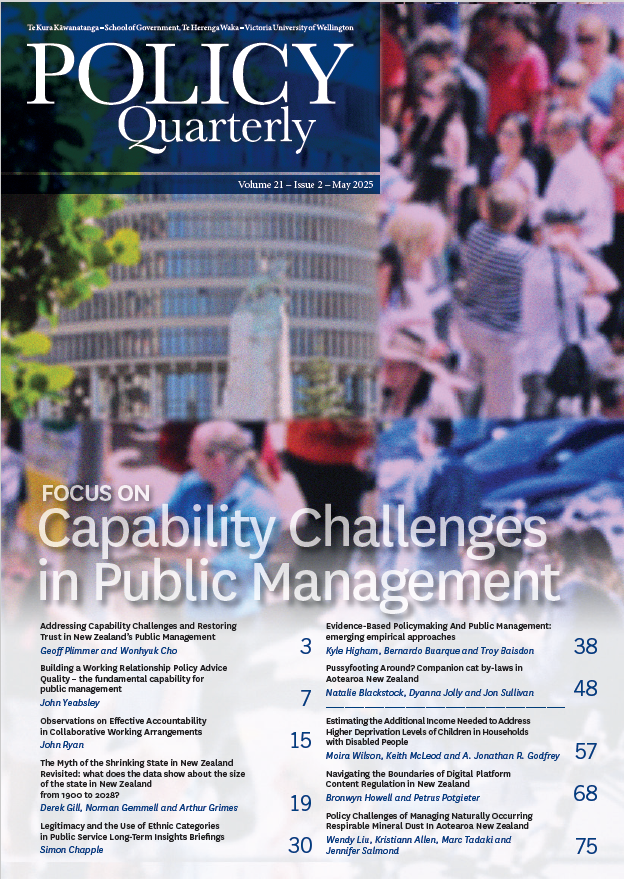Navigating the Boundaries of Digital Platform Content Regulation in New Zealand
DOI:
https://doi.org/10.26686/pq.v21i2.9818Keywords:
New Zealand, digital platform content regulation, censorship, free speech, Christchurch callAbstract
This article examines the complexities of implementing online content regulation in a small jurisdiction such as New Zealand. Three attempts at hate speech and online content regulation have faltered, in part due to the difficulty of crafting precise legal definitions and different possible conceptions of harm. The ‘safer online services and media platforms’ policy is the most recent. Given New Zealand’s limited market size and the global reach of online platforms, enforcing local content standards is both impractical and potentially ineffective. Most content originates offshore, beyond the scope of domestic legislation, and technological solutions to tailor content to individual user groups are costly and easily circumvented. Existing domestic laws and voluntary industry codes combined with the spillover effects of regulations in larger jurisdictions and international multi-stakeholder efforts likely offer more effective solutions then local legislation. Hence, fostering international cooperation, leveraging global standards and encouraging voluntary compliance should be encouraged.
Downloads
Downloads
Published
Issue
Section
License
Permission: In the interest of promoting debate and wider dissemination, the IGPS encourages use of all or part of the articles appearing in PQ, where there is no element of commercial gain. Appropriate acknowledgement of both author and source should be made in all cases. Please direct requests for permission to reprint articles from this publication to Policy-Quarterly@vuw.ac.nz.



